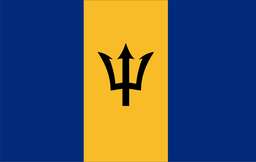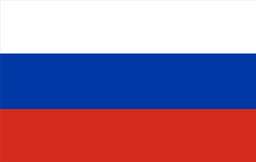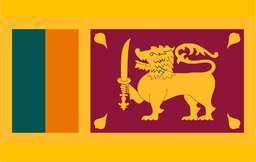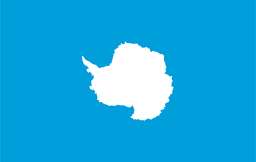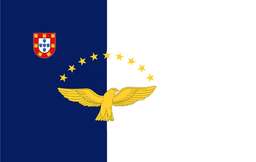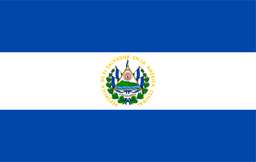Argentina is a large country in South America, stretching from the Andes Mountains in the west to the Atlantic Ocean in the east. The history of Argentina is shaped by ancient Indigenous cultures, Spanish colonization, independence movements, waves of European immigration, political instability, and modern nation-building. Because of its size and natural resources, Argentina has played an important role in both regional and global history.
From early human settlement and colonial rule to independence, economic growth, military governments, and democracy, Argentina’s past explains its strong cultural identity and complex political journey.
Geography and Historical Importance
Argentina’s geography greatly influenced its history. The country includes:
Fertile plains (the Pampas)
Mountains
Deserts
Long coastlines
These regions supported farming, cattle raising, and trade. Argentina’s location also connected it closely with neighboring countries such as Chile, Uruguay, and Brazil.
Early Indigenous Peoples
Before European arrival, Argentina was home to many Indigenous groups, including the Diaguita, Guaraní, Mapuche, and Querandí peoples.
These societies:
Practiced farming, hunting, and fishing
Built villages and trade networks
Adapted to very different environments
Their cultures shaped the earliest history of the region.
Indigenous Life Before Colonization
Indigenous communities organized life around:
Family groups
Seasonal movement
Respect for nature
They developed tools, pottery, and rich oral traditions that helped preserve knowledge across generations.
Arrival of the Spanish
Spanish explorers reached the region in the early 16th century while searching for wealth, land, and trade routes.
Early Spanish settlements faced:
Strong resistance from Indigenous peoples
Harsh living conditions
For this reason, permanent colonization developed slowly.
Spanish Colonial Rule
Argentina became part of the Spanish Empire and was later included in the Viceroyalty of the Río de la Plata.
Under Spanish rule:
Cities were founded
Catholicism spread
Trade was tightly controlled by colonial authorities
Buenos Aires gradually grew into an important political and economic center.
Economy During the Colonial Period
The colonial economy relied mainly on:
Livestock
Trade through Buenos Aires
Limited agriculture
Strict Spanish trade rules caused frustration among local settlers and merchants.
Social Structure Under Spain
Colonial society was divided into rigid social classes. European settlers held most political and economic power, while Indigenous people and enslaved Africans faced discrimination and hardship.
Influence of Enlightenment Ideas
By the late 18th century, ideas about freedom, rights, and self-rule began to spread from Europe and North America. Local leaders increasingly questioned Spanish authority.
British Invasions (1806–1807)
British forces attempted to invade Buenos Aires twice. Local militias successfully defended the city.
These victories:
Increased confidence in local leadership
Weakened Spanish authority
Road to Independence
Political events in Europe weakened Spain and created an opportunity for independence movements across South America. Local leaders in Argentina began organizing for self-rule.
Argentine Independence (1816)
In 1816, representatives declared independence from Spain. This moment marked the birth of Argentina as a new nation.
Early Challenges After Independence
The new country faced many difficulties, including:
Internal conflicts
Disagreements over how the country should be governed
Regional rivalries
National unity was difficult to achieve.
Civil Wars and Regional Conflict
During much of the 19th century, Argentina experienced civil wars between supporters of strong central government and powerful regional leaders. These conflicts delayed political stability.
Formation of the Argentine State
By the late 19th century:
A national constitution was established
Central authority became stronger
Argentina began to function as a unified state
European Immigration
From the late 19th to the early 20th century, millions of Europeans migrated to Argentina, mainly from:
Italy
Spain
This massive immigration reshaped Argentine culture, language, and society.
Economic Growth and Agriculture
Argentina became one of the world’s leading agricultural producers. The Pampas supported:
Wheat farming
Cattle ranching
Economic growth attracted foreign investment and helped build modern infrastructure.
Social Change and Urbanization
Cities, especially Buenos Aires, expanded rapidly. Industrialization increased, and labor movements began to play an important role in politics and society.
Argentina in the World War Periods
Argentina remained neutral during much of World War I and World War II. This policy influenced both international relations and the national economy.
Rise of Populism
In the mid-20th century, populist politics reshaped Argentina. Leaders promoted:
Workers’ rights
National industry
Social welfare
Politics became more centralized and strongly connected to mass movements.
Military Rule and Political Instability
Argentina experienced several periods of military government.
These periods were marked by:
Political repression
Economic difficulties
Serious human rights abuses
Society was deeply affected by these events.
Return to Democracy (1983)
In 1983, Argentina returned to democratic rule. This marked:
The restoration of free elections
A new focus on human rights
Democracy became the foundation of modern political life.
Economic Crises and Reform
Argentina faced major economic crises in the late 20th and early 21st centuries. Reforms aimed to:
Stabilize the economy
Control inflation
Economic challenges, however, have continued to appear.
Argentina in the Modern Era
Today, Argentina is one of the major countries of South America with a diverse economy. It plays an active role in regional organizations such as Mercosur and in global institutions like the United Nations (UN).
Society, Culture, and Identity
Argentine culture reflects:
Strong European influence
Deep Indigenous roots
Rich traditions in music, sport, and literature
National identity remains powerful and deeply rooted in history.
Argentina Today
Modern Argentina continues to balance:
Democratic governance
Economic development
Social equality
History remains central to national debates and public life.
Key Historical Timeline of Argentina
Pre-16th century: Indigenous societies
16th century: Spanish colonization
1816: Independence
19th century: Civil wars and state formation
Late 1800s: Mass European immigration
1976–1983: Military rule
1983: Democracy restored
Modern era: Democratic nation
Frequently Asked Questions (FAQ)
When did Argentina gain independence?
In 1816.
Which groups lived in Argentina before colonization?
Various Indigenous peoples such as the Guaraní and Mapuche.
Why is Argentina important in South America?
Because of its size, economy, and cultural influence.
Sources and Historical Accuracy
This article is written for educational and informational purposes only. It is based on widely accepted South American historical research, academic studies, and international records. The content is original and written in a neutral and objective tone.
Conclusion
The history of Argentina is a story of transformation and resilience. From Indigenous societies and colonial rule to independence, mass immigration, political struggle, and democracy, Argentina has developed a rich and complex national identity. Understanding this history helps explain the country’s culture, challenges, and important role in the modern world.






